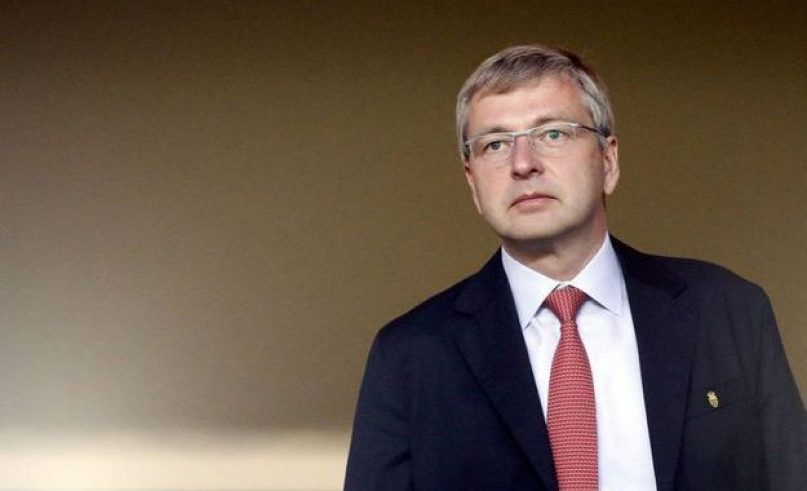Rybolovlev-Bouvier case: Swiss courts close criminal proceedings against Dmitry Rybolovlev

The Swiss Federal Court has acquitted Dmitry Rybolovlev, AS Monaco’s owner. The decision, announced this week by his lawyers and widely reported by the international media, brings to a close the Swiss chapter of a story that began in 2017.
The criminal proceedings against the owner of AS Monaco and his lawyer Maitre Bersheda were opened in 2017 by the Swiss Office of the Attorney General (OAG). Rybolovlev’s lawyers, Sandrine Giroud and Benoît Mauron, state in their press release, that their client was suspected of “acts performed illegally for a foreign state” under article 271 of the Swiss Criminal Code for purportedly arranging the presence of a Swiss citizen in Monaco so he could be apprehended by the Principality’s police.
The case has now been closed and, as the leading Swiss news agency ATS points out, “there are no grounds to justify pursuing it.”
A recap of the facts
The Rybolovlev-Bouvier case stems from a business dispute concerning the sale of a prestigious collection of works of art, including the famous “Salvator Mundi” attributed to Leonardo da Vinci, as well as masterpieces by Picasso, Modigliani, Van Gogh and others.
As Artnet reports, Rybolovlev filed a complaint against Bouvier in 2015, accusing him of overcharging for the works to the tune of around a billion dollars and taking advantage of his position to make exorbitant markups. He then reported what he considered to be fraudulent practices, leading to a series of legal proceedings in several countries, including Switzerland, Monaco, Singapore and the United States, according to Bloomberg, one of the world’s leading business news agencies.
Accusations of manipulation
In 2017, Bouvier in turn accused Rybolovlev of having lured him to Monaco under false pretences in order to have him arrested. These accusations were based on information on the mobile phone belonging to Rybolovlev’s lawyer, Tetiana Bersheda. As the AFP reports, “at the request of the examining magistrate Édouard Levrault, a French magistrate on secondment to Monaco at the time, a computer expert recovered thousands of messages on it, despite them having been deleted.”
According to Bouvier’s lawyers, this pointed to a concerted plan on Rybolovlev’s part to “trap” the art dealer.
Rybolovlev’s lawyers have always contested these allegations, however, describing them as “baseless“. In fact, in its ruling to dismiss the case, which Monaco Tribune was able to consult, the OAG stressed that “the defence has presented “a plausible version […] casting doubt on the commission of the offense.” “The OAG therefore finds that such evidence cannot be used against our client,” conclude the Monegasque resident’s lawyers in their statement.
Bouvier was arrested in Monaco on 25 February 2015, but the criminal charges brought against him in the Principality were dropped in 2019, a decision that was upheld by the Monegasque courts a year later.
The European Court of Human Rights’ ruling
The decision by the Swiss Office of the Attorney General to close the case is based on crucial points. In its ruling, the OAG stated that the evidence obtained from Ms Bersheda’s telephone was no longer admissible.
ARTnews, an American media outlet specialising in the art world, points out that this finding follows a verdict by the European Court of Human Rights (ECHR), which ruled in June 2024 that harvesting the data was illegal.
The OAG does indeed mention that the European Court of Human Rights found Art. 8 ECHR to have been violated and that “the investigations undertaken by the investigating judge into [Ms Bersheda’s] mobile phone and the massive and indiscriminate retrieval of personal data, including data that had previously been deleted by the applicant, went beyond the remit of the case, which related solely to invasion of privacy, and were not accompanied by guarantees with respect to the applicant’s status and privilege as a lawyer.”
As a result, the OAG reviewed the legitimacy of the entire procedure. Bouvier’s accusations are no longer based on “any evidence,” the OAG’s ruling states.
Mr Rybolovlev’s lawyers welcomed the decision in their press release, stressing that it restored “the fundamental principles of law.” They declared that the decision “has definitively closed the case and confirmed our client’s innocence, which he has steadfastly maintained.”
Tetiana Bersheda’s lawyers, Benjamin Borsodi and Charles Goumaz, told the Swiss daily Le Temps: “Tetiana Bersheda is delighted to be able to turn this page following the restoration of fundamental legal principles by the ECHR judges, and she can now devote herself fully to her work as a lawyer.”
Now the Monegasque chapter
Despite the end to proceedings in Switzerland, the “Monacogate” case is still ongoing, as La Tribune de Genève points out. Dmitry Rybolovlev faces charges of influence peddling and corruption, which he denies.
Contacted by Monaco Tribune, Martin Reynaud, the Parisian lawyer retained by AS Monaco’s owner, who is also working with Monegasque lawyer Thomas Giaccardi, stressed that the admissibility of these accusations rests solely on evidence that is deemed illicit by the ECHR.
Reynaud hopes that the ECHR judgement will have a similar impact in Monaco. “Given the clarity and severity of the findings against Monaco in June 2024 for unlawful use of the telephone belonging to Mr Rybolovlev’s lawyer, we hope that the procedural outcome will be the same in Monaco as in Switzerland: an end to the case,” he says.
“The Monegasque proceedings are based exclusively on this unlawful use by the previous investigating judge. This means there must be an immediate end to them, without the need to examine Mr Rybolovlev’s many arguments in his case defence. The charges are already in dispute,” he adds.













